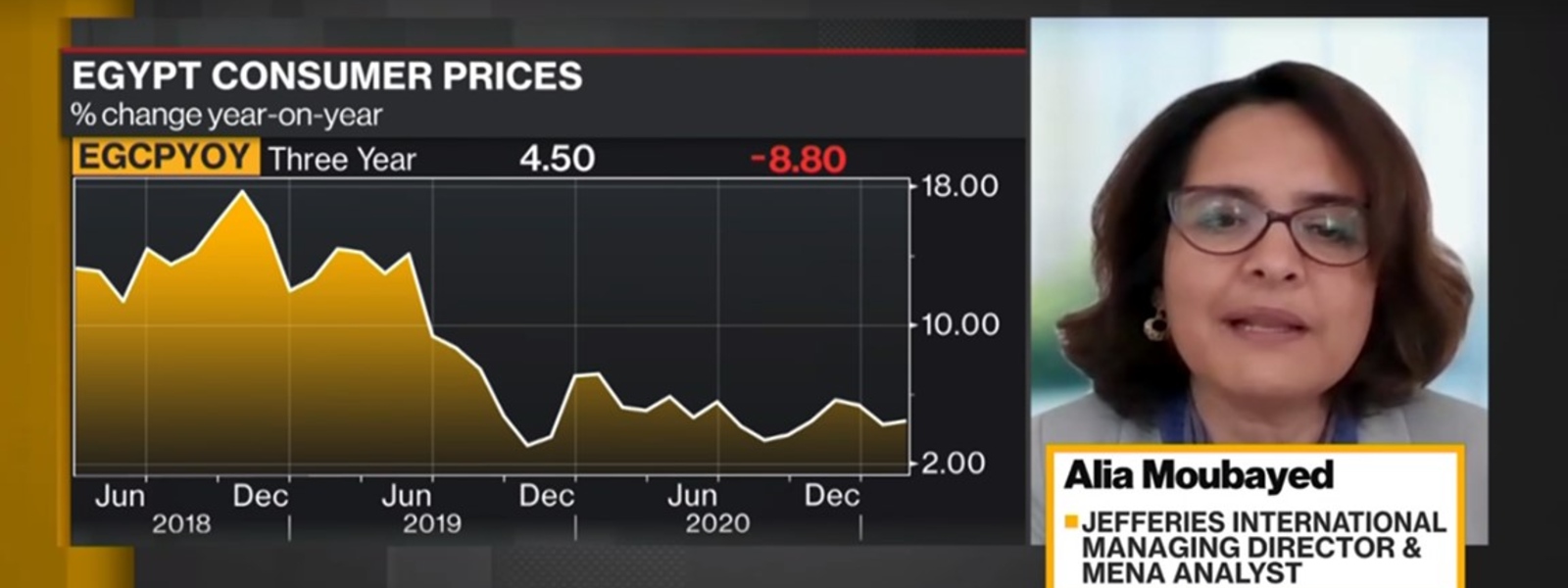CBE rate hold reflects Egypt’s “manageable” inflation + strong portfolio flows

The CBE’s decision to leave interest rates on hold this past Thursday reflects Egypt’s “manageable” inflation rate and strong portfolio inflows, Jefferies International MENA Analyst Alia Moubayed told Bloomberg TV (watch, runtime: 07:02).
Egypt keeping its monetary easing cycle on pause is consistent with achieving the target inflation rate of 7% (±2) by the end of next year, the CBE said in its Thursday statement. With core inflation at 3.6% and urban inflation at 4.5% in February, Moubayed believes that “as long as we are in this range of inflation, I think the central bank can afford to remain where it is now.”
But high rates could keep Egypt’s growth muted in the long term, says Moubayed. “The tension moving forward is really about ensuring that this level of rate does not obstruct the growth recovery which Egypt needs the most, while ensuring that flows are sustainable,” she said.
Maintaining sustainable inflows is essential for Egypt’s external financing bill, with needs for this year reaching USD 30 bn, Moubayad said. Foreign holdings in local Egyptian debt hit its highest-ever level of USD 28.5 bn in February, reversing the huge outflows seen at the height of the global covid market crash last year, which saw foreign investors sell 60% of their holdings between March and May.
Thursday’s rate hold had been expected by all 12 analysts we surveyed ahead of the meeting, who cited the possible impact of heightened commodity prices on domestic inflation, as well as the potential for rising bond yields in the US to hit our all-important carry trade.